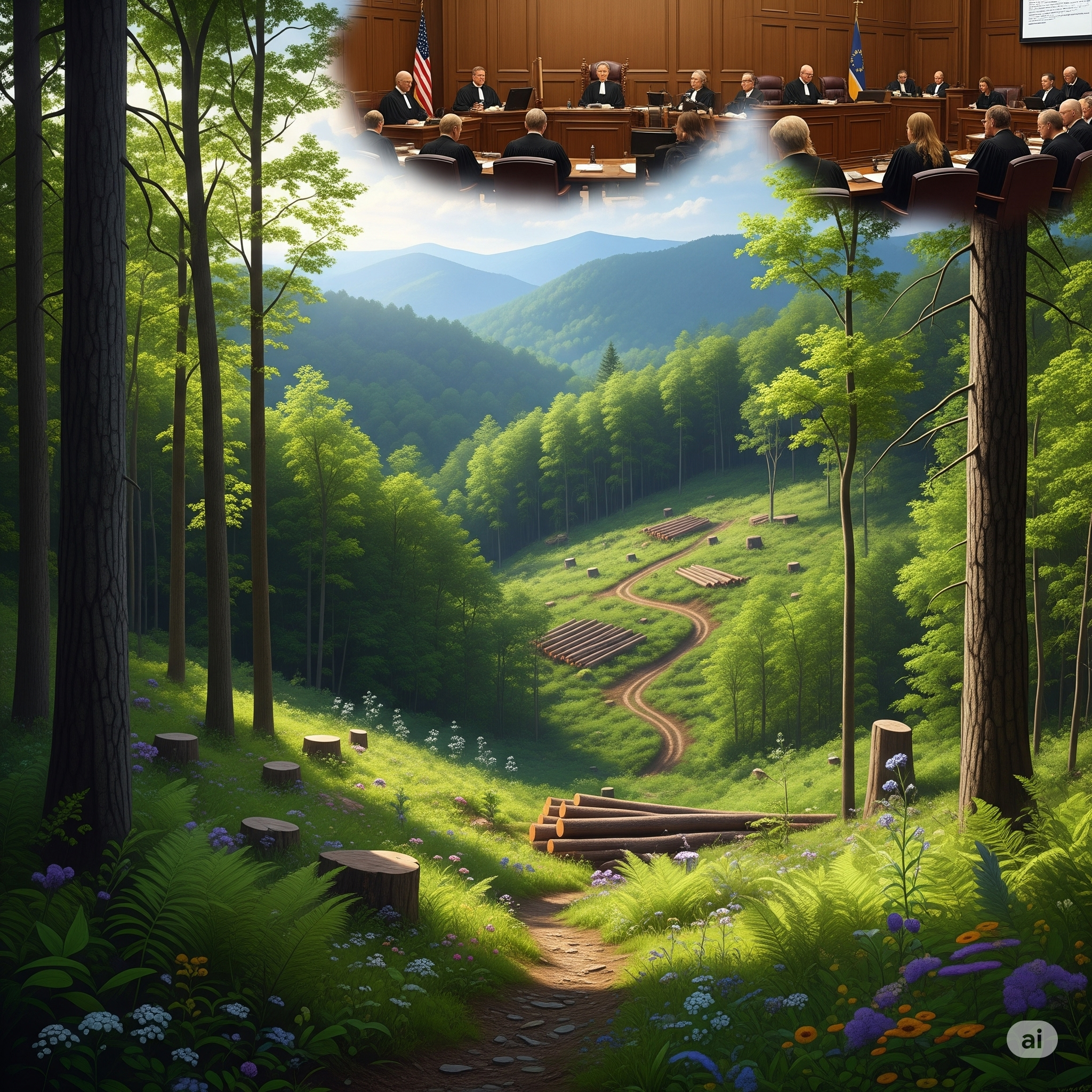
Environmental Groups Sue Forest Service Over New WNC Forest Plan
WNC -- Outdoor/Environmental: Western North Carolina's Pisgah and Nantahala National Forests are vital resources for recreation, wildlife, and the regional economy.
Currently, a significant legal challenge is underway concerning the U.S. Forest Service's long-term plan for managing these extensive public lands. This lawsuit aims to influence how these forests will be utilized and protected over the next two decades.
What's the Big Deal?
At the heart of this dispute is the Forest Service's 2023 Nantahala-Pisgah Forest Plan. This plan is essentially a guidebook, deciding where activities like logging, trail building, and wildlife protection will happen across roughly one million acres of national forest land.
A group of environmental organizations, including the Center for Biological Diversity, Sierra Club, Defenders of Wildlife, and our local Asheville-based MountainTrue, believe this plan is seriously flawed. They're not just complaining; they've taken the Forest Service to court.
The Main Concerns:
Too Much Logging? The environmental groups argue that the new plan allows for a huge increase in logging – potentially up to five times more than in previous plans. They're worried this could open up sensitive areas, old-growth forests (those ancient, untouched sections), and remote backcountry areas to commercial timber cutting.
Hurricane Helene's Impact:
A major turning point in this debate was Hurricane Helene, which slammed into Western North Carolina in September 2024. This powerful storm ripped through our forests, flattening trees across tens of thousands of acres. Environmentalists say this natural disaster already created a lot of "young forest" habitat (areas with new growth where old trees fell). Their point: if nature is already creating these new areas, why do we need to log so much more, especially in healthy, intact parts of the forest? They worry that more logging on top of Helene's damage would be a "one-two punch" that our forests can't handle.
Questionable Data:
Reports from Asheville Watchdog suggested that some of the data used by the Forest Service to justify these higher logging targets might have been incomplete or misleading.
Protecting Wildlife and Water: The groups are also concerned about how increased logging and road construction might harm endangered species (like certain bats and squirrels) and impact the quality of our local rivers and streams.
What Does the Forest Service Say?
The U.S. Forest Service hasn't commented directly on the lawsuit because it's an active legal case. However, they have previously stated their focus is on: Creating "Young Forest": They argue that cutting some trees helps create "young forest" areas, which are important habitats for certain wildlife species and can make forests healthier and more resistant to diseases and wildfires.
Hurricane Helene Recovery: They are also very focused on dealing with the massive amount of downed trees from Hurricane Helene. This "salvage logging" is aimed at reducing wildfire risks and reopening access to damaged areas. They've stated that urgent safety needs sometimes require them to speed up these recovery efforts, which can mean less public input.
Streamlining Operations: The Forest Service is also working under a broader push from federal directives to increase timber production and simplify how forests are managed.
What's Next?
The environmental groups filed their lawsuit in late March 2025. The Forest Service has since asked the court to dismiss the lawsuit, arguing that the environmental groups haven't shown enough evidence of immediate harm.
We are now waiting for the court to decide on this "motion to dismiss." If the judge allows the lawsuit to move forward, it will then enter a more detailed phase where both sides gather and share information. There is no set trial date right now.
This legal battle highlights the ongoing challenge of balancing different needs for our national forests – from timber production and recreation to preserving pristine wilderness and protecting wildlife. For now, the future of our cherished Pisgah and Nantahala National Forests hangs in the balance, with a federal judge's decision likely to shape their destiny for years to come.
WNCTimes
Image: WNCTimes


 How to resolve AdBlock issue?
How to resolve AdBlock issue? 